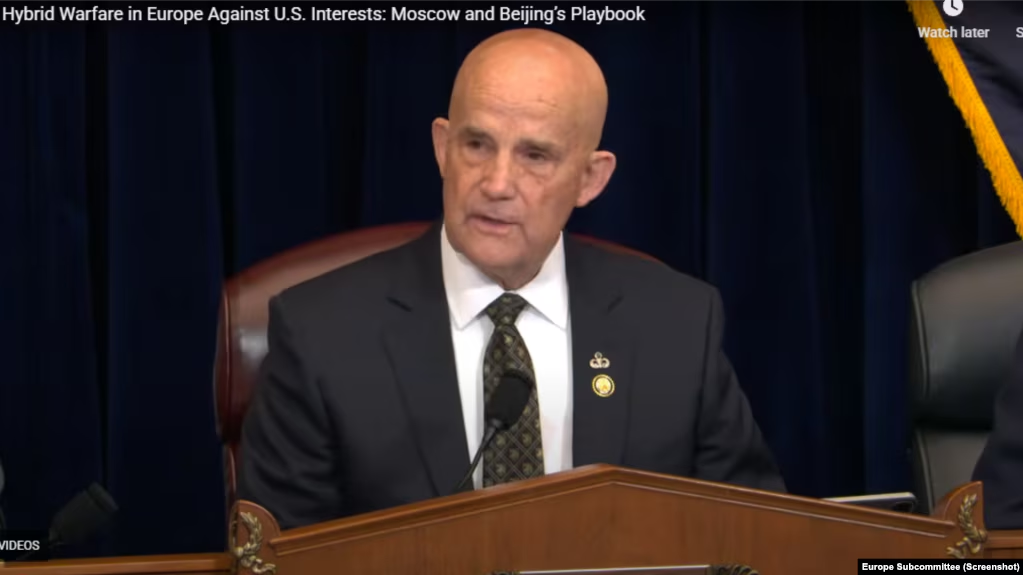
A RECENT VIDEO CLIP SHOWING POLICE OFFICERS INSPECTING CELL PHONES OF SUBWAY PASSENGERS IN AN UNIDENTIFIED CHINESE CITY. HTTPS://TWITTER.COM/SARAH_CHINABJ/STATUS/1026301663085117441
On August 17, 2018 at about 3:30 p.m., He Guangwei (何光伟) strode out of the A Exit at the Zhujiang Xincheng subway stop in Guangzhou, carrying a bag of drumstick leaves, a rare vegetable, on his way to meet a friend. In the years prior, when he worked as a journalist at the prominent newspaper Southern Weekend (《南方周末》), he got on and off everyday at the very same stop. A short walk from the subway, a member of China’s auxiliary police (that is, a non-official police officer) intercepted him and demanded in a voluble tone that he produce his identification card for inspection. He glanced around and noticed that not far off another police officer was rebuking a young man for not having his ID with him. He Guangwei had worked in Guangzhou for eight years and had never once been stopped on the street and subjected to an ID inspection. He asked the officer why — “Are you enforcing the law?” The officer said he was. He then enquired as to which law was being enforced. The officer couldn’t answer, but simply stared at him and roared: “Are you going to produce your ID? Are you going to cooperate or not?!” He was then taken to the local police station where he was informed that, according to Article 15 of the Law of the People’s Republic of China on Resident Identity Cards (《中华人民共和国居民身份证法》) he was being submitted to an ID inspection. It just so happened that He was quite familiar with Article 15 of the ID Law. He Guangwei knew that he was neither a criminal suspect, nor at a controlled site, nor suspected of involvement in any incidents seriously harming social order, nor present at any of the designated locations during large-scale public activities during which ID inspections may be freely conducted by police. He was merely a pedestrian walking on the street, no different to any other person on any other day walking on any other road. And so he began to argue. The officers grabbed him and shoved him into an interrogation room, pushed him up against the wall, and patted him down. They checked his phone and notebook, and rifled through the bag of vegetables. To conclude the ordeal the officers demanded that he write a self-criticism and dictated its content: “Having been educated by the People’s Police, I have come to recognize my error. I promise that in future when police ask for my identification, I will produce it for inspection.” He Guangwei later wrote about the encounter on his WeChat account, titling it “A Trip Through the Xian Village Police Station” (《过冼村派出所》); the post appears to have attracted over one million readers.
In the essay, he wrote: “If the enforcers of the law actually followed the law, would anyone dare to violate the law while enforcing it? If there is something a citizen doesn’t know and the police give you the answers, who would reject an ID inspection?”
He’s mistaken. The Ministry of Public Security on December 1, 2016 published the Draft Amendment of People’s Police Law of the People’s Republic of China (《中华人民共和国人民警察法》修订草案稿, referred to throughout as the ‘New Police Law’), which significantly increases police powers. The amendments have essentially written China’s police a blank check allowing them to inspect any IDs they wish, to collect personal information, and intrude on citizens’ privacy at will.
Affirming Police Loyalty To The Communist Party
Article 5 of the New Police Law stipulates:
“The People’s Police must be loyal to the Chinese Communist Party, loyal to the country, loyal to the people, and loyal to the constitution and the law.”
The first version of the Police Law came out in February 1995, with the full title the People’s Police Law of the People’s Republic of China (《中华人民共和国警察法》) (it was revised in October 2012). Neither the original or the 2012 revision mentioned the CCP (which does not mean that the police don’t belong to the Party), and nor were the constitution and the law placed at the bottom of the hierarchy of allegiance.
In late March of this year, Xi Jinping held the first meeting of the Party Central Committee for the Comprehensive Deepening of Reform (中央全面深化改革委员会), which oversaw the passage of several new police documents — including “the Pilot Plans for Reforming the Rank of Law Enforcement Officers at Public Security Organs” (《公安机关执法勤务警员职务序列改革方案(试行)》) and “the Pilot Plans for Reforming the Rank of Police Technicians” (《公安机关警务技术职务序列改革方案(试行)》) — among others. According to follow-up reports in the official and semi-official media, China may in the future establish two police corps, in the form of a Public Security Administration (公安行政部门) and a Police Corps (警察总署). The responsibilities of the former would be focused on the administration and management of the household registration and entry-exit system and other administrative affairs; the latter would be the coercive power of the state apparatus, organized as a semi-militarized force that must maintain absolute loyalty to the Communist Party. It’s possible that the items about “loyalty” in the New Police Law were in order to pave the way for the Police Corps — but whatever the case, these articles without any doubt reflect the increasing weight being given to police powers in the current stability maintenance regime.
Summaries of the salient items in these two public security reform documents are available online, though the original posts have been purged from WeChat and iFeng.
Special Clause For ‘Social Entities Participating In Public Security’
Article 6 of the New Police Law introduces “the principle of integrating police forces with the masses.” The precise language says:
“Public security organs must persist in linking their specialized work with the Mass Line; [they must] improve the mechanism for mobilizing social entities to take part in public security; [they must have a public security system in which] public security is maintained by the masses guarding against and handling problems; [they must] promote the socialized management of public security.”
Just what is “the socialized management of public security”? According to an exposition on “the comprehensive management mechanism for public security” in the Party journal Qiushi (《求是》) three years ago, socialized management of public security refers to “relying on grassroots organizations, cultivating a wide network of informants, and working hard to extend the antannae of public security work into every corner [of society].” Currently, the public security and police departments already make widespread use of mass organizations, such as neighborhood committees, property management companies, neighborhood security guards and private security companies, to engage in surveillance, reporting, and assistance for their work. This has become the norm in China. The New Police Law would codify all these activities, giving them a basis in the law itself, and allow the police to legally and effortlessly demand and obtain the cooperation of more social entities.
Authorizing The Police To Inspect IDs On Demand
Article 16 of the New Police Law stipulates:
“The People’s Police may, in the performance of their duties, lawfully inspect the identification cards or other forms of proof of identification of residents.”
Shi Ping (施平), a former journalist and currently a lawyer (who goes by the moniker Shi Yu [石玉] online), points out: “If this draft law is passed, one can imagine a circumstance like this in the future: Few police officers citizens encounter in public space are not there ‘in the performance of their duties’; they are at least ‘in the performance of the duty’ to prevent illegal activity. Thus, a police officer will, without any other requirement or restriction, be empowered to inspect the identification of any citizen on demand.”
In comparison to the stipulations about the inspection of identification in Article 15 of the Law of the People’s Republic of China on Resident Identity Cards (《中华人民共和国身份证法》) , the New Police Law without any doubt expands to an arbitrary degree the power of police to inspect ID cards. Even when conducting their duties now — as seen in the He Guangwei incident and countless others — it is a common occurrence for police to arbitrarily demand to see citizens’ IDs. What the New Police Law does is codify this practice in legislation.
Summons On Demand
The current Police Law makes no mention of the power of summons (传唤), and the word does not appear anywhere in the text.
The New Police Law however adds the following clauses about summons powers:
“The People’s Police, where they need to summon and investigate individuals who have violated public security administrative management laws or regulations, shall use a summons authorized by a responsible officer in the public security department handling [such] cases. In cases where violations of public security administrative management laws or regulations are taking place on site, police may show their ID and deliver the summons verbally, but this should be noted in the interrogation transcript. When a summons is delivered, the reason, basis, and location of the summons should be told to the individual being summoned. Coercive measures may be taken to enforce appearance at a summons for individuals who, without legitimate reason, refuse to accept or attempt to escape a summons.”
What does “violating public security administrative management laws or regulations” refer to? On December 27, 2010, the Ministry of Public Security formulated and published “Notice Regarding the Promulgation of ‘Opinion on the Reference Terms and Applicability of Illegal Behaviors in Violation of Public Security Administrative Management Regulations’” (关于印发《违反公安行政管理违法行为的名称及其适用意见》的通知》), which comes up with 682 violative behaviors described and regulated in 67 different pieces of legislation, administrative statutes, or regulations that would be considered violations of public security administrative management laws and regulations. They then break down the offenses into the following areas: public security (1-401), exit-entry and border defense (402-508), fire control management (509-554), computer and internet security (555-613), traffic management (614-662), and drug prohibition (663-682).
These 682 offenses are so encompassing that, in other words, there will always be a reason to summon you.
Not long ago a short piece of footage went viral online showing six police officers forcing their way into the home of a young woman late at night, saying they were “summoning” her, because she had written “something” online. She demanded that the police produce a warrant or formal reason for the summons. This form of arbitrary summons is common in China today — though a vivid recording of it is extremely rare to see. China Change made English-language subtitles for the video in order to give readers a better understanding of the deep terror and menace that Chinese police instill in ordinary citizens. Part of the exchange includes the following, for instance:
<iframe width=”600″ height=”360″ src=”https://www.youtube.com/embed/cCOAbkTs_a4″ frameborder=”0″ allow=”autoplay; encrypted-media” allowfullscreen></iframe>
[Woman] Why are you coming to my home this late? What’s going on?
[Police] You come with us and we’ll discuss it.
[Woman] Why should I?
[Police] Because we’re the police.
[Woman] So just like that you can take people away for no reason?
[Police] Yeah — so what?
When the New Police Law is passed, it will be completely legal for six police officers to summon a young woman from her home in the middle of the night to the police station where she has to give an account of her social media posts. She’ll have no grounds to ask ‘Why?’ and will simply have to obey.
Expanding The Scope Of Police Power To Conduct Searches
Article 22 of the New Police Law, on inspections and searches, says the following:
“In performance of their duties, the People’s Police, having produced identification and a search warrant, may conduct an inspection and search of individuals — including their residences, personal effects, and persons — suspected of violations of the law; in cases where there is a genuine need for immediate inspection and search, police may, after producing their identification, carry out the inspection and search on site forthwith; if the individual subject to search and inspection refuses to cooperate, they may be forcibly inspected and searched.”
The New Police Law expands the power of police to search and inspect with reference to the vague phrases “in performance of their duties,” and “in cases where there is a genuine need for immediate inspection and search.” This effectively means that whenever any individual police officer personally decides that it’s necessary, he may simply engage in the inspection and search of any citizen right then and there. This gives far greater scope to police powers than Article 12 of the current Police Law, which says: “In order to investigate criminal activities, the People’s Police of the public security organs may, according to the law, detain, search, arrest or employ other compulsory measures.”
Article 37 of the Constitution stipulates: “The freedom of person of citizens of the People’s Republic of China is inviolable,” and “Unlawful deprivation or restriction of citizens’ freedom of person by detention or other means is prohibited; and unlawful search of the person of citizens is prohibited.” Article 39 of the Constitution says: “The home of citizens of the People’s Republic of China is inviolable. Unlawful search of, or intrusion into, a citizen’s home is prohibited.”
And yet the amendments in the New Police Law will empower any police officer to invade at will the personal residence of any citizen, and the action need not require any evidence or due process.
Does the new clause about ‘searches’ include the extraction and inspection of data on the cell phones of Chinese citizens? Though the language is not clear on this point, the current practice shows that the answer is almost certainly ‘yes.’
Authorizing Police To Physically Inspect Citizens And Collect Biometrics
Article 24 of the New Police Law says:
“The People’s Police may search the persons of criminal suspects, obtain a mugshot, fingerprints, voice signature, an image of the iris and other individually identifying information, including blood, saliva, urine, hair or other biological samples. If criminal suspects refuse to be searched or have these items collected, the search and collection can be undertaken by force.”
This is new, and the current Police Law contains no article of this type. Nevertheless, for a very long time now police around China have already begun collecting mugshots, fingerprints, DNA samples and more from Chinese citizens of all sorts — not only criminal suspects, but non-suspects too, including activists, human rights defenders, dissidents, and others. Moreover, these individuals report having their biometrics collected by multiple police departments in different jurisdictions.
Some have feared that such biometrics could be used to plant evidence and frame people up, while others have worried about yet other motives.
Article 38 of the Constitution says: “The personal dignity of citizens of the People’s Republic of China is inviolable. Insult, libel, false charge or frame-up directed against citizens by any means is prohibited.” Yet the criteria for judgment as to who is a “criminal suspect” and who is a citizen suspected of no crime but still targeted for “mugshots, fingerprints, voice signature, an image of the iris and other individually identifying information, including blood, saliva, urine, hair or other biological samples” contains a great deal of flexibility for the authorities. The process of collecting biometrics of citizens not only limits the personal freedom of the individual, but is an infringement on basic human dignity.
On March 3, 2018, during the ‘Two Meetings’ in Beijing, the Beijing resident Li Wei (李蔚), responding to the demands of Beijing public security forces, left the capital and went to “travel” in Hangzhou. That evening Li was accosted by police at his hotel and his ID demanded for inspection. In the process of Li requesting a summons to verify that he indeed had to produce his ID, five or six individuals broke into his room and beat him, causing injuries. After he produced his ID, the police told him to go to the police station so that his fingerprints, DNA, and cell phone data could all be collected. The police told him explicitly that he had not been suspected of any crime, but that his ID was being checked and his biometrics collected merely because he had a “prior record” (Li Wei was imprisoned during the Chinese government’s crackdown on the New Citizens’ Movement, and has since been designated as a ‘key person’ in the eyes of the guobao, or political police). Li lodged a series of complaints against the Hangzhou police for illegally restricting his personal freedom as well as a variety of other rights violations, including the police failure to provide written acknowledgement of the complaints as required by law. His case has gone nowhere as the courts and the police departments refuse to file the case for him.
Police Can Search People Or Organizations At Will And Surveil Public Spaces
Article 25 of the New Police Law stipulates:
“The People’s Police, as required to perform their duties and in accordance with relevant national regulations, may look up and extract relevant information about citizens, legal persons, and other organizations, and they may collect information from public spaces, roads, and cyberspace using surveillance technologies. The information so obtained shall be stored and used prudently, and may not be used for matters unrelated to the fulfillment of official duties.”
This article, again, is not in the current Police Law. One recent phenomenon is the appearance on social media of short videos showing police at subway stations in urban areas inspecting the phones of commuters. A twitter user recently described what he personally witnessed, and noted that he was extremely scared and didn’t dare to take photos of the incident. He wrote:
Hongpo
@Hongpo_Shanghai
大舌头录音中所说的新疆模式向全国推广恐非虚言,至少今日亲眼所见警察在杭州地铁站内挨个查手机:
时间:2018年8月23日15:55;
地点:杭州地铁1号线凤起路站入站安检口,对进站的乘客排队挨个查手机;
工具:使用的是手持式电子扫描设备;
警察人数6-7人。
(说明:没敢拍实照)
9:26 AM – Aug 23, 2018
984
674 people are talking about this
Twitter Ads info and privacy
Date and time: August 23, 2018, 3:55 p.m.;
Location: Safety check at the entrance of the No. 1 Line subway at the Fengqi Road station, Hangzhou (杭州地铁1号线凤起路站); [the police were] checking the phone of every passenger waiting in line to enter the station;
Apparatus: They were using handheld scanning equipment;
The number of police: 6 to 7.
Despite the fact that the current Police Law does not in fact authorize the police to do this, evidently the regime has commanded that they do so anyway. Just as with the other changes, the New Police Law simply codifies in a statute what has already become practice. As for the surveillance of public places roads, and cyberspace, one can already see cameras every 50 meters on the streets of Beijing for a taste of what that feels like. So much has already been reported about the shocking extent of China’s surveillance state.
Severing The Internet When Called For
The New Police Law bestows expanded powers of internet management on the public security organs. Article 29 says:
“Public security organs of the People’s Governments at the county-level and above may, when encountering natural disasters, accidents, public health incidents, or social safety incidents, or if there is the urgent danger of any such disaster, catastrophe, or incident taking place, set up roadblocks and delimit controlled zones over a certain area and time period in order to limit or prohibit personnel and vehicular travel, lingering, or entry and exit, among other traffic management or site management measures. When necessary they may, with the consent of public security organs of the People’s Governments of the provincial-level and above, implement controls over the internet.
“On the occasion of large-scale public events, mass activities, or when providing security for state-designated individuals or targets, [authorities] may adopt the above mentioned measures, and may at the same time institute safety inspections, personnel inspections, electronic jamming, and other measures.”
Though it’s not yet a common occurrence for the authorities to sever internet access, there are already many precedents. On July 5, 2009, following ethnic conflicts in Urumqi, the Xinjiang authorities cut off the internet for one month. On the scene of mass incidents and protests, people often report being unable to access the internet or operate other electronic equipment. In April 2014, tens of thousands of residents of Maoming, Guangdong Province, marched in protest of a paraxylene plant set to be built there. The authorities blockaded the city and cut off the internet, thus suppressing the news. In April 2017, after the suspicious death (said to be due to falling from a building) of a 14-year-old middle school student in Luzhou, Sichuan, the police engaged in a coverup of the case, triggering protests from over 1,000 residents and leading to clashes. For the next 12 days, electricity and internet services were cut off in much of the city. In the recent protests by parents in Leiyang, Hunan, over the authorities assigning students in public schools to privately-operated schools with high tuitions, no news has been heard for the last few days, leading many to suspect that Leiyang has also had its internet cut off.
At first blush, according to the language in the New Police Law, it may appear that the circumstances under which the internet can be cut off, as well as the threshold required to get approval for such an action, are set very high. But judging by the actual cases over the last few years, the requirements for severing internet access appear to be quite small, and the decisions seem to be mostly triggered by mass protests.
———-
Some predict that the New Police Law will be granted passage and become law by the Standing Committee of the National People’s Congress during the ‘Two Meetings’ in Beijing in March 2019, after a package of public security/police institutional reform measures are approved.
It’s been 20 months since the Ministry of Public Security put the draft of the New Police Law out for public comment, but the document has attracted little public notice, except for a handful of lawyers and interested citizens who have expressed concern about some of its clauses. This sort of indifference is not in the least surprising: In China, the question of which laws are decided, who decides on them, and how they decide them, is all based simply on the Party’s will. Citizens do not have the right to elect their own representatives, the media are owned and run by the Party-state, and the people simply have no say in the affairs of state. The so-called “solicitation of opinion” is merely about the authorities going through the motions. Everyone understands that the National People’s Congress is the Party’s rubber stamp; the police forces are the Party’s ‘knife handle’; legislation and law enforcement are merely tools for the Party to maintain its rule. It is increasingly dangerous for citizens to express their dissent. Police would arrive at their door in no time, just as they did that night to the young woman in Shenzhen for her social media posts.











